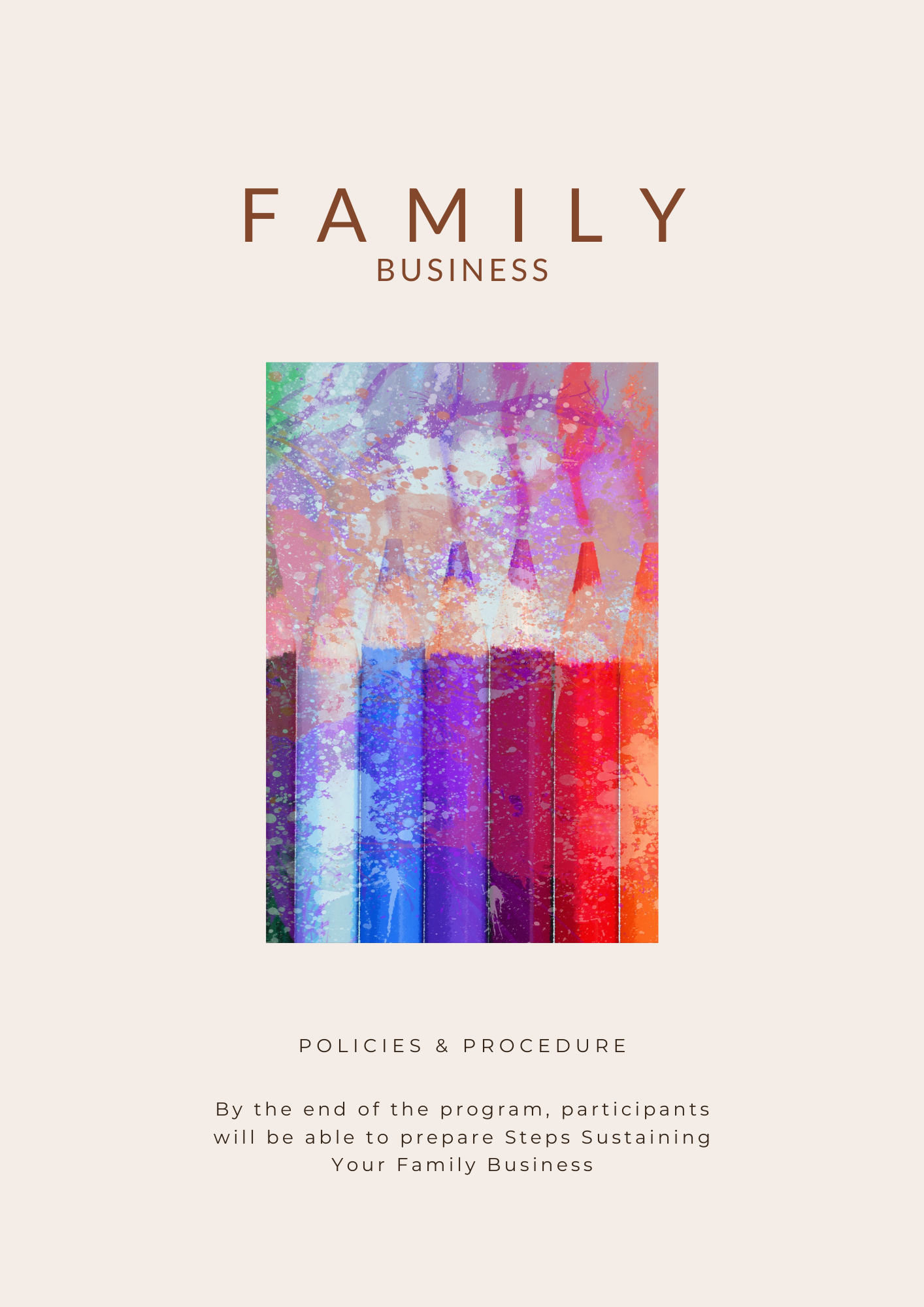Policies & Procedure for Family Business
Introduction
Policies and procedures are crucial for the stability, efficiency, and longevity of a family business. They establish clear guidelines for decision-making, governance, and daily operations, reducing conflicts and ensuring consistency across generations. Well-defined policies help balance family dynamics with business priorities, fostering professionalism and accountability. They also provide a structured approach to succession planning, financial management, and conflict resolution, minimizing risks and enhancing transparency. Without proper policies and procedures, family businesses may face internal disputes, operational inefficiencies, and leadership uncertainties. A strong framework ensures smooth operations, long-term growth, and the preservation of both business success and family harmony.
This training program is designed to include:
- 16 hours of training
- 03 months of one-on-one coaching
How you will benefit
- Understand the importance of clear and well-defined policies and procedures in a family business.
- Develop and implement a comprehensive policy manual covering key areas such as human resources, finance, operations, and safety.
- Learn to create and document standard operating procedures (SOPs) for key business processes.
- Enhance internal controls and minimize operational risk.
Improve efficiency and productivity through standardized processes. - Ensure compliance with legal and regulatory requirements.
- Communicate policies and procedures effectively to all stakeholders.
- Regularly review and update policies and procedures to ensure their effectiveness.
Who should attend
Families in Business: From Generation to Generation is intended for teams of business family members, such as:
- A chief executive officer [or top family business leader(s)] and his or her spouse
- Children of the business leader(s) and their spouses
- Siblings and their spouses/partners
- Cousins and their spouses/partners
These family members might be:
- A manager or an employee
- A board member
- A shareholder
- An interested relative, who may be an in-law
What you will cover
- Employment and family policies those clarify expectations
- Integrating your child into your company
- Closing the generation gap
- Creating an organizational chart of your family business
- Managing unproductive partners
- Preventing deadlock
- Engineering the entrepreneurial spirit
- Sibling partners need an openness policy
- Achieving unity in a large family
- The right way to make decisions
- Splitting the business to unify the family
- The secrets of successful family business successors
- How to introduce your successor to key outside stakeholders
- When the successors don't take charge
- When to recruit an interim leader
- The best fit corporate structure
- Building an effective board
- Designing a family business governance structure
- Creating a family holding company
- Building a family code
- Building a family ethic policy
- Why do you need a policy on prenuptial agreements
- Transitioning to equitable base pay for family employees
- Executive compensation strategies for private companies
- Is an ESOP appropriate for your company
- Developing a strategic plan
- Diversifying your holding
- Creating value through strategic acquisitions
- Financial best practice for family businesses
- Agreement with relatives should be put in writing
- Dividend policity
Schedule









